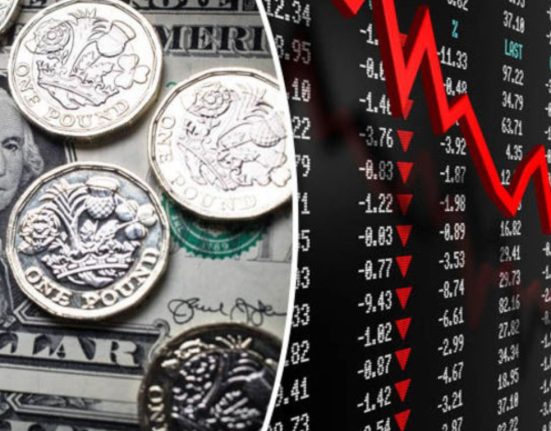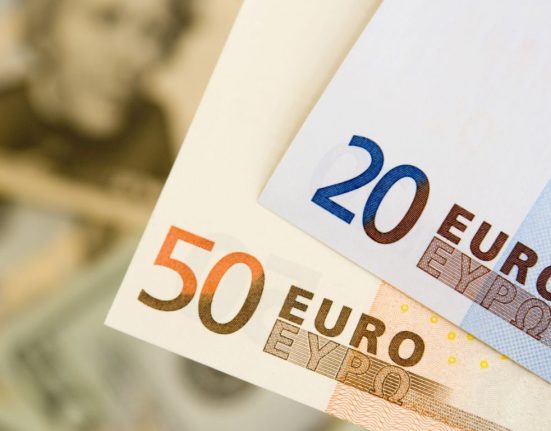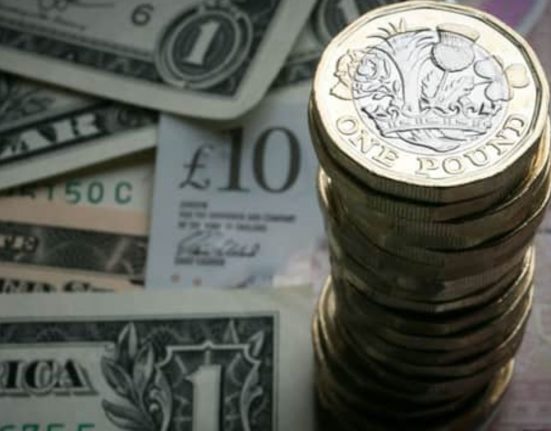The euro witnessed a significant downward spiral, plunging to its weakest level against the British pound since December 15. At its lowest point, the euro-to-pound exchange rate stood at 86.27 pence. As of the latest update, the euro remained down 0.2%, trading at 86.32 pence. This decline was triggered by the release of inflation data from France and several major German states, which failed to meet market expectations.
Disappointing Inflation Data from France and Germany
Inflation data plays a crucial role in shaping the performance of currencies in the global market. Disappointingly, recent reports from France and several major German states revealed figures that fell short of expectations. The underwhelming inflation rates in these key economies have prompted a bearish sentiment towards the euro, resulting in its decline against the pound.
Weakest Euro Performance Since December
The euro’s slump against the pound marks its weakest performance in the last eight months. This downturn highlights the vulnerability of the eurozone’s single currency to external economic factors, such as inflation data. Investors and currency traders closely monitor inflation indicators as they provide valuable insights into the overall health of an economy and influence monetary policy decisions.
Impact on Currency Markets and Trading
The drop in the euro’s value against the pound has significant implications for the currency market and trading activities. Traders and investors who closely follow these exchange rates are likely to adjust their positions and strategies in response to the euro’s weakening trend. This adjustment may include shifting investments towards stronger currencies or hedging against potential risks associated with the euro’s volatility.
Potential Factors Contributing to the Euro’s Weakness
Several factors may have contributed to the euro’s vulnerability and subsequent decline against the pound. Firstly, the lower-than-expected inflation rates in France and major German states have diminished the prospects of a near-term interest rate hike by the European Central Bank (ECB). This divergence in monetary policy expectations between the ECB and the Bank of England may have further amplified the euro’s weakness.
Uncertainty Surrounding Eurozone Recovery
The disappointing inflation data adds to the existing uncertainty surrounding the recovery of the Eurozone economies. While some countries have shown signs of progress in their economic rebound, concerns persist regarding the long-term effects of the pandemic, supply chain disruptions, and global trade tensions. Market participants are closely monitoring these factors, and any negative developments may further impact the euro’s performance.
Market Sentiment and Risk Aversion
Market sentiment plays a pivotal role in determining the performance of currencies. The recent drop in the euro’s value against the pound reflects a cautious market sentiment and increased risk aversion. Investors may be seeking safer havens, such as the British pound, in light of the uncertain economic conditions in the Eurozone. This flight to safety has further weighed on the euro’s exchange rate against its British counterpart.
Impact on Trade and Tourism
The euro’s decline against the pound can have notable implications for trade and tourism between the Eurozone and the United Kingdom. A weaker euro makes Eurozone exports relatively cheaper, potentially boosting demand for Eurozone goods and services from British consumers. Conversely, it may become more expensive for Eurozone residents to travel to the UK, impacting tourism and related industries.
Outlook and Future Developments
The future trajectory of the euro against the pound remains uncertain, as it is influenced by numerous economic factors and geopolitical events. Key upcoming events that could impact the currency market include central bank announcements, economic data releases, and developments related to Brexit and the Eurozone’s recovery efforts. Traders and investors will continue to monitor these factors closely to make informed decisions regarding their currency positions.
In conclusion, the euro experienced a significant decline against the pound, reaching its weakest level in eight months. Disappointing inflation data from France and major German states served as a catalyst for this downturn. The impact of this decline extends beyond the currency market, potentially affecting trade and tourism between the Eurozone and the United Kingdom. As with any currency, the euro’s performance will depend on a multitude of economic and geopolitical factors in the coming months.










